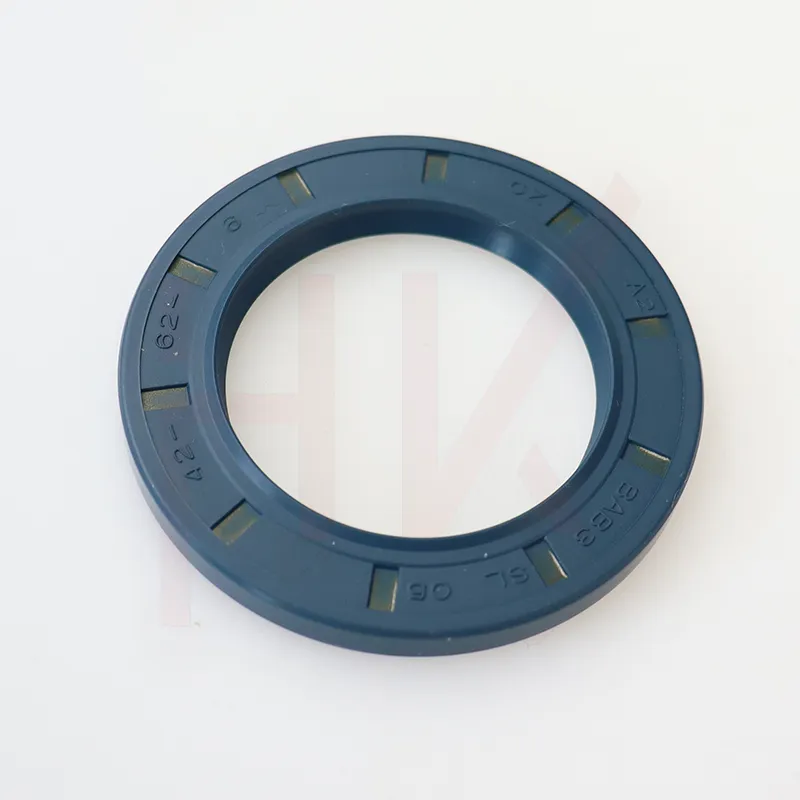ئۆكتەبىر . 13, 2024 06:51 Back to list
Essential Components for Mechanical Seal Maintenance and Replacement Kits
Understanding Mechanical Seal Kits A Comprehensive Guide
Mechanical seals play an integral role in numerous industries by preventing fluid leaks and ensuring the longevity of rotating machinery. They are essential components found in pumps, mixers, compressors, and other equipment where fluid containment is critical. A mechanical seal kit consists of all the necessary components required for the installation, repair, or replacement of mechanical seals. This article aims to provide an overview of mechanical seal kits, their components, applications, and troubleshooting techniques.
What Is a Mechanical Seal?
A mechanical seal is a sealing device that joins together two parts while allowing relative motion between them. It prevents fluid from leaking out of a system and keeps contaminants from entering. Typically, a mechanical seal consists of a rotating face and a stationary face, often complemented by springs or elastomers that maintain contact and create a tight seal under pressure.
Components of a Mechanical Seal Kit
A typical mechanical seal kit includes various components
1. Seal Faces These are the primary sealing elements, usually made from materials like carbon, ceramics, or tungsten carbide. The choice of material depends on the application and the type of fluid being sealed.
2. Springs Springs maintain the necessary pressure between the seal faces, compensating for wear and maintaining optimal contact. They can be metal coil springs or elastomeric bellows, depending on the design of the seal.
3. Elastomers Seals often include O-rings or other rubber components that provide additional sealing and insulation between the rotating and stationary parts. The material of the elastomer can significantly affect the seal's performance, influencing resistance to temperature and chemicals.
4. Mounting Hardware These components include bolts, nuts, and spacers that help secure the mechanical seal in place during operation.
Applications of Mechanical Seal Kits
mechanical seal kit

Mechanical seals are found in a variety of applications across multiple industries
- Pumping Systems They are crucial in industrial and agricultural pumps, ensuring that fluids do not leak out during operation. - Chemical Processing In environments involving corrosive substances, mechanical seals provide necessary containment, protecting both the machinery and the environment.
- Food and Beverage Industry Sanitary mechanical seals are designed to meet health standards while keeping products safe and contamination-free.
- Oil and Gas Industry High-performance seals are essential for handling viscous and volatile fluids under high pressure.
Troubleshooting Mechanical Seal Issues
Mechanical seal kits can become essential when dealing with performance issues. Common problems include
- Leaking Seals If a seal is leaking, the first step is to check the installation. Improper alignment can cause premature wear. Also, inspect the seal faces for scratches or wear.
- Excessive Wear If seals are wearing too quickly, it could be due to fluid contamination or improper lubrication. Assessing the working environment and the quality of the fluids being handled can help identify the source of the issue.
- High Temperature Operating at temperatures beyond the specifications can damage seals. Ensure that the seals are rated for the operational temperatures and consider a replacement with a higher tolerance if necessary.
Conclusion
Mechanical seal kits are indispensable in maintaining the efficiency and safety of machinery across various industries. By understanding the components and functions of these kits, users can ensure optimal performance, extending the life of their equipment. Regular maintenance, correct installation, and prompt troubleshooting can effectively prevent costly leaks and machinery failures, making mechanical seal kits a sound investment for any operation. In an age where efficiency and safety are paramount, leveraging the benefits of mechanical seal kits is critical for sustainable industrial practices.
-
TCN Oil Seal Metal Ring Reinforcement for Heavy Machinery
NewsJul.25,2025
-
Rotary Lip Seal Spring-Loaded Design for High-Speed Applications
NewsJul.25,2025
-
Hydraulic Cylinder Seals Polyurethane Material for High-Impact Jobs
NewsJul.25,2025
-
High Pressure Oil Seal Polyurethane Coating Wear Resistance
NewsJul.25,2025
-
Dust Proof Seal Double Lip Design for Construction Equipment
NewsJul.25,2025
-
Hub Seal Polyurethane Wear Resistance in Agricultural Vehicles
NewsJul.25,2025
-
The Trans-formative Journey of Wheel Hub Oil Seals
NewsJun.06,2025
Products categories
















